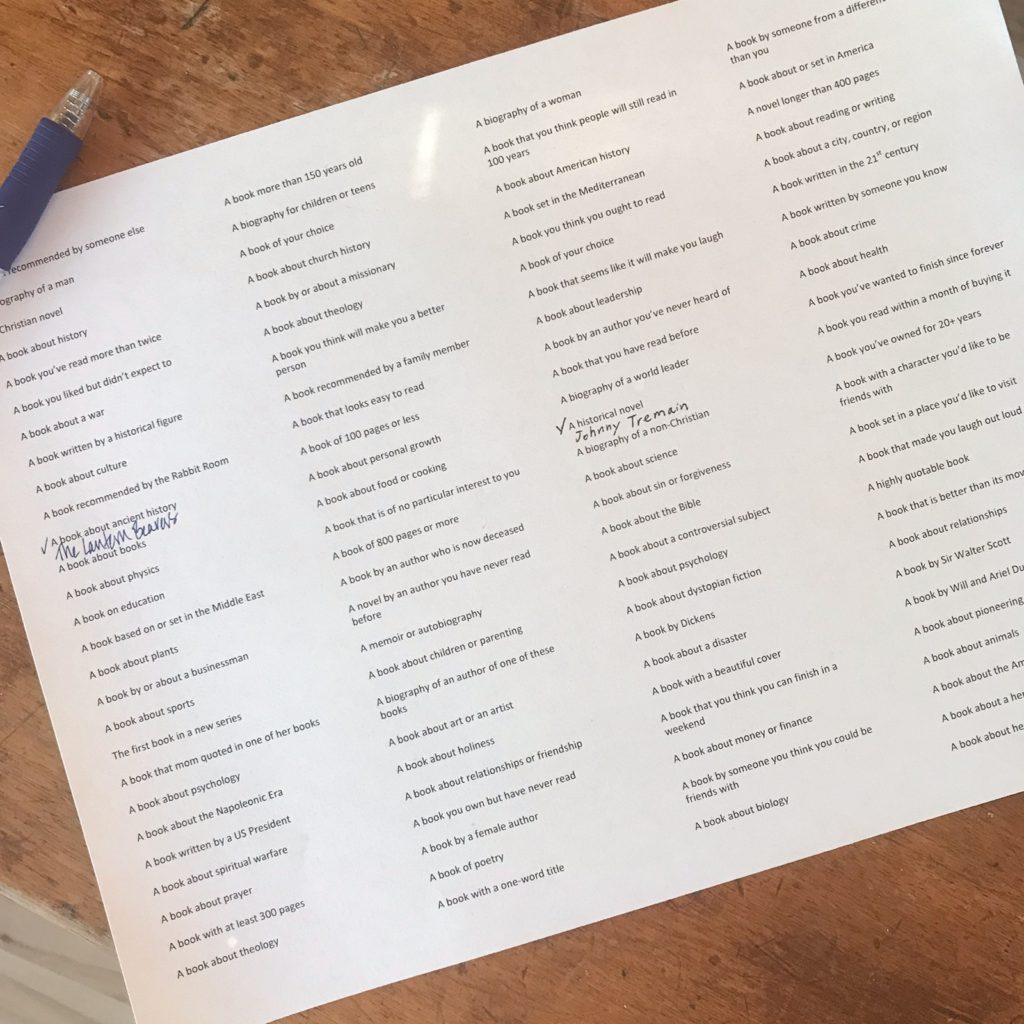There are seasons of motherhood when I spend all day saying stupid things like “No, you may not swing the cat in the pillowcase,” and “No, you may not take the cat outside on a leash,” and “No, you may not put the baby overalls on the cat,” and also (lest you think every wild idea around here involves a cat) “Why are you on that part of our roof?” By the time we make it to bedtime, our sons think putting pajamas on is a contact sport and I am so sick of refereeing the game that I want to eject everyone from it.

That’s just normal parenting. Throw in special needs or health issues or a major home repair, and everything feels overwhelming and out of proportion. Life is hard, full of real problems that platitudes have no answers for. In those seasons, we dread the morning and the new day. We do not know what the future holds, but if past performance is any indicator of future results, it seems safer to just stay in bed.
Some of my kids have special needs, and usually those needs are far more behavioral than physical. Sometimes they just refuse to grow and move forward, and there is nothing I can do to move them past the place they’ve dug their heels in.
And the thing I have learned — and am still learning — is that parenting, adoption, and special needs are not necessarily pass/fail endeavors. Because the child makes his or her own choices, and eventually the child has to learn to clean up their own mess. We all do, right?
We’re all meant to grow. And the more a child refuses to grow, the more God grows me. Either way, God brings healing and wholeness. It’s just more fun when we don’t resist it.
If God is giving you the opportunity to grow and heal in these days, to rip something out and start over again, then for the love of all that is holy, do not squander it. Do not shy from the Lord’s probing questions, gentle correction, or nudges toward alignment and surrender. Our joy is at stake in these opportunities to clean up the mess.
We have to do the heart-work of wholeness and forgiveness, of understanding our triggers, of maturing past that old, unattractive hang up, whatever it is. The healing can come in just a few minutes or it can take years, but the timeline rests on our own willingness to surrender.

Here’s a good word for us: The sun doesn’t insist on shining on everything all the time; it surrenders every day. It yields to clouds and isn’t diminished by the presence of something that blocks its light. It’s not in competition with any other light or any other thing that gets in its way and creates a shadow. It just keeps shining, doing what it was made to do.
Every night, it is beautiful in surrender. And regardless of how cold or cloudy it was the day before, it never fails to rise the next day. That might be a word for us, too.
Sooner or later things start to take shape and we can see what the Maker is up to. And it’s always good…eventually.
But surrender is hard. Haaaaarrrd, say it with me in four syllables. If it wasn’t, would it be surrender at all? But it is also powerful, because surrender is also birthing, bringing new life. And when we see the fruit on the other side of it, we see the beauty and joy and breakthrough that come from laying down our agenda for His.

It doesn’t matter if it’s homeschooling, writing a book, parenting, learning anything new, or finally mastering the act of getting dressed in the morning without tangling up your pantleg and tripping yourself (hey, I only write about what I know), we are always learning and growing.
Or, we ought to be. There are those who choose to stagnate, but that’s probably not you.
So, a word of encouragement: If you are feeling the burn of an uphill climb, it’s because you’re going somewhere. Stretching. Moving. Making strides. Gaining ground. Advancing. Moving forward. Going places.
Once you surrender, the unexpected won’t stop you. Mistakes, once realized, confessed and yielded to God, will only advance you further.
So, press in – there is no setback God won’t use to move you forward when you walk in surrender to Him.
____________

This is an excerpt from ABIDE volume 6: Surrender to Win. The ABIDE series is now complete, and it’s available here and everywhere books are sold.





